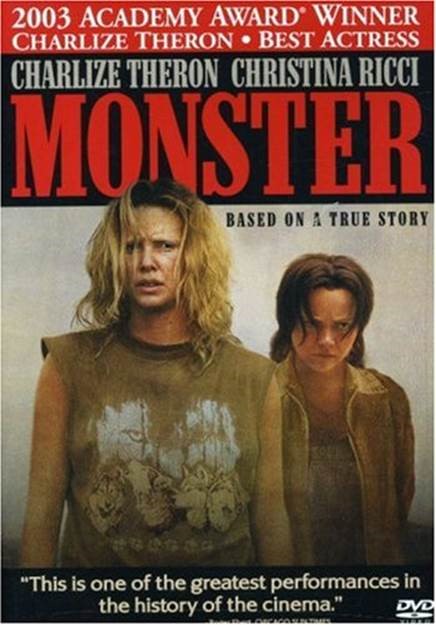by Phyllis Chesler

Last night, Oxygen aired their program about Florida’s lesbian prostitute serial killer, Aileen Carol Wuornos, for the umpteenth time. This was the first time I watched it and I got to see myself on camera. They successfully covered many points of view as well as the major scandals. However, many of the most important things I said did not make the final cut, for example: about the nature of prostitution; ineffective counsel; the “dream team” of experts that I’d organized for her trial and whom were never called; and about a woman’s right to kill her rapist or attempted rapist in self-defense. This right belongs to women in prison, married women at home, women who dress like hookers and women who are hookers. I guess the program did not want a radical feminist analysis of these issues to interfere with the prurient, somewhat trashy-glossy spin that such programs are usually like.
One interviewee emphatically claimed that Wuornos received a fair trial. Not so. I cried out on camera: “Mistrial!” “An outrage!” An anti-death penalty lawyer kept repeating all the many examples which proved that minimal justice was far from served. I was the one who first told Wuornos’s legal team to look into the past of her first John/victim. They told me: “The dead man is not on trial.” An investigative journalist talked about this important failure in the film. I would love to talk to her.
I have an amazing unpublished manuscript about this case—and about the feminist and lesbian interest in it. I might publish a part of Chapter One—my version of Truman Capote’s “In Cold Blood” and Norman Mailer’s “Executioner’s Song.”
- Like
- Digg
- Tumblr
- VKontakte
- Buffer
- Love This
- Odnoklassniki
- Meneame
- Blogger
- Amazon
- Yahoo Mail
- Gmail
- AOL
- Newsvine
- HackerNews
- Evernote
- MySpace
- Mail.ru
- Viadeo
- Line
- Comments
- SMS
- Viber
- Telegram
- Subscribe
- Facebook Messenger
- Kakao
- LiveJournal
- Yammer
- Edgar
- Fintel
- Mix
- Instapaper
- Copy Link








11 Responses
Interesting subject, and so well-written!
I would be very interested in seeing a book on this subject
What an interesting topic!!
Interesting, informative, and exciting. Has all the earmarks of a best-seller.
Yes, please publish what you’ve written about this very important subject. The history deserves to be known. We trust you to write serious analysis without dulling the terrible drama of the subject.
Eileen Wuornos lived and died in a world where an understanding of her life could not even be contemplated. She was treated as a stereotype, a throwaway, and treated herself as such, too. She went to her death believing she was valueless.
That as esteemed a psychiatrist, feminist, and author as Phyllis Chesler has chosen to seek to understand her is a great gift to the study of women in society. Eileen Wuornos is all of us, in so many ways. Dr. Chesler is uniquely equipped to help readers understand this. I hope she will have the opportunity to publish a full study of this fascinating character, so deserving of a second chance at an understood life.
Although some time has passed since thisseries of events transpired, executed by this unusual and frankly intriguing person, the issues raised by Ms.Wuornos, and developed thoughtfully by /dr. chesler warrant additional attention.
It is not only that Dr.Chesler brings to bear the perspective and perspicacity of a psychologist and professor, but her gestation of these elements produces an altogether different and important new body of assessment, discussion and value hierarchy.
There are, of course, numerous new issues that were not adduced at the time the original killings occurred. There has been, indeed, a sea change in how women and their plaints of abuse are now viewed–perhaps it took too long to arrive at these shores, but arrive ? Dr. Chesler has done. Alltheoretical underpinnings, especially in view of the recent Me, too movement, which is probably more skeletal in its lineaments than the work of Dr. Chesler would and could bring to bear.
Uncomfortable as this entire skein of events may be to many, there are lessons to be learned from them, and there appears no one better suited to airing and examining these issues than theerudite and eloquent Dr. chesler, who sheds high-wattage illumination on any topic she undergtakes. need to be examined for their important yield
Dr. Chesler’s lifelong brilliance, piercing insight, and fearlessness about taking on controversial and important subjects are all in evidence here. I hope she does write this book!
A compelling read by a great storyteller, scholar, and social warrior. As relevant today as when the events reported first took place. Challenges our assumptions about justice itself.
What a story! I knew nothing about this case until I watched Monster, the film. Although it was mentioned in passing, I was struck by the fact that Aileen had been raped since age 8 by her father’s friend, while her father did nothing to save her. Slipping into prostitution was easy, and she did it for a long time, a roadside sex working flagging down passing cars. Then we witness a horrific physical torture by a pervert, and with our 21st century sensibilities, it was easy to understand why she snapped and went on a murderous rampage. I have not seen the documentary by Oxygen (which I plan to watch soon,) but I started reading about this case. It is not surprising that Phyllis Chesler has a fresh view on this case, both from having become involved with Aileen’s trial and from her decades-long understanding of both psychological issues as they intersect with feminist narration. Just as her previous books became bestsellers, I’m certain that her new book–now still a manuscript–will get a great traction in today’s “MeToo” environment.
‘Equal justice for all’ is meant to actually mean something. It’s not a catch-phrase.